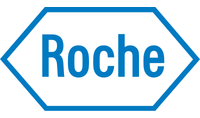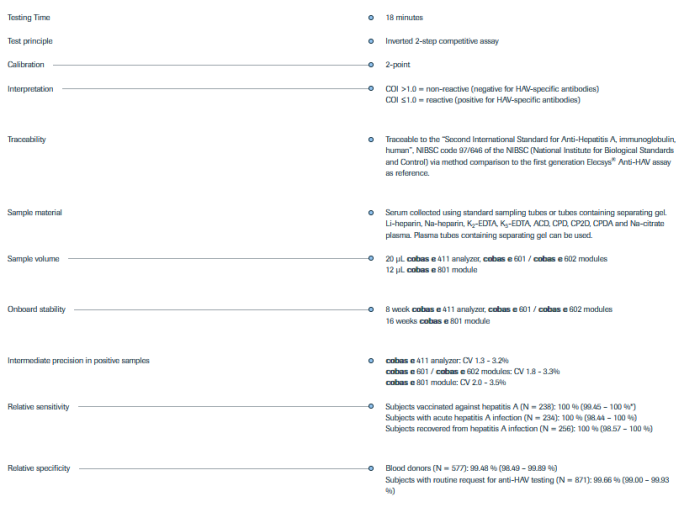

- Home
- Companies
- Roche Diagnostics International AG
- Products
- Elecsys - Model Anti-HAV II - Total ...

Elecsys - Model Anti-HAV II -Total Antibodies Detection Unit
Hepatitis A
Hepatitis A is an acute, inflammatory liver disease caused by infection with the hepatitis A virus (HAV). HAV is a non-enveloped RNA virus in the family of picornaviruses. Of the 7 known genotypes, 4 can infect humans. Only one serotype of HAV has been documented.1-5
Hepatitis A occurs sporadically and in epidemics worldwide, with around 1.4 million new HAV infections reported each year.3,4 HAV is transmitted fecal-orally either by person-to-person contact or ingestion of contaminated food or water in regions of low hygienic standards. Cooked foods can transmit HAV if the temperature during food preparation is inadequate to inactivate the virus or if food is contaminated through infected food handlers.1,4-6
HAV has only been linked with acute hepatitis, and most patients fully recover within two months after infection. Only 10 - 15 % of people infected will have prolonged or relapsed illness for up to 6 months. Exposure to HAV creates lifelong immunity against future infection. HAV vaccines are available, which also stimulate active, lifelong immunity with 95 – 100 % efficiency.1-4
Anti-HAV IgM becomes detectable 5 - 10 days before onset of symptoms, peaks during the symptomatic period and becomes undetectable in 75 % of patients 3 - 6 months after infection. Anti-HAV IgG, which appears after IgM, begins to rise at or right before the onset of clinical illness, peaks during the convalescent period, and persists to provide lifelong protection against the disease.3,7-10

